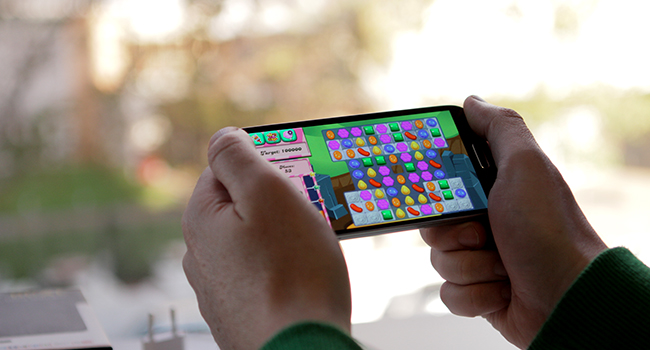There was once a time when the traditional gaming industry would have gamers the world over hooked into television screens and monitors, all wired up into fantasy lands, space battles and dank dungeons, a burgeoning powerful force that outperformed the financial gains of even the biggest of Hollywood blockbusters.
Today however, traditional gaming has become meek, and somewhat washed out. And it’s all our fault.
Ever since our smartphones were able to display graphical data on their screens as good as any PC, the beginning of the end of traditional console gaming platform had begun, according to many.
The love affair we have for our mobile devices still intensifies year in year out and the expectations we place on our handheld phones increases with it too. As such, the mobile gaming industry has overtaken the cumbersome, seemingly aging console platform. Mobile gaming has fundamentally changed the way people approach games with accessibility being the key attribute which drives this still fledgling market.
Mobile Evolution
There is some quality to be found in the mobile gaming ecosystem too. Some gaming developers have taken advantage of the improved hardware capabilities available today’s smart phones. Companies such as Spotlight Online Gaming have seized on this mobile opportunity meaning commuters now have new options to entertain them on their journey.
This accessibility has effectively spoilt us however, it has opened up gaming to an audience with a much more consumerist, mainstream mind-set, whereas traditional gamers were more forgiving with slower release times for the sake of quality, mobile gamers today tend to just want a quick fix to kill time. No longer do you or I need to invest in a big heavy box that sits under our TV allowing us to shoot our friends in the face with a plasma blaster or race neighbours on an anti-gravity race track. We can now do all this from the luxury of our own pocket.
As Wired.com mention in great detail, these games give the player everything they had on the traditional console with the added value of mobility, greater social interaction and convenience with the key caveat being that it is aimed at the more casual of gamers rather than the hard-core.
By targeting the casual gamer on mobile, the hard-core traditional gamer would in theory be less threatened by the continual rise and rise of mobile games. If both casual and hard-core gamers remain in their own spheres, then the dangers of platform crossover will be greatly reduced.
It is up to us, those who appreciate both console and mobile gaming, to try and influence the forces of this market. By keeping mobile games focused on the casual gamer, the more traditional of the industries will survive a little longer, and may even think of new and innovative ways to complement its younger sibling, and besides, we quite like having a big heavy box under the TV.




Leave a Reply